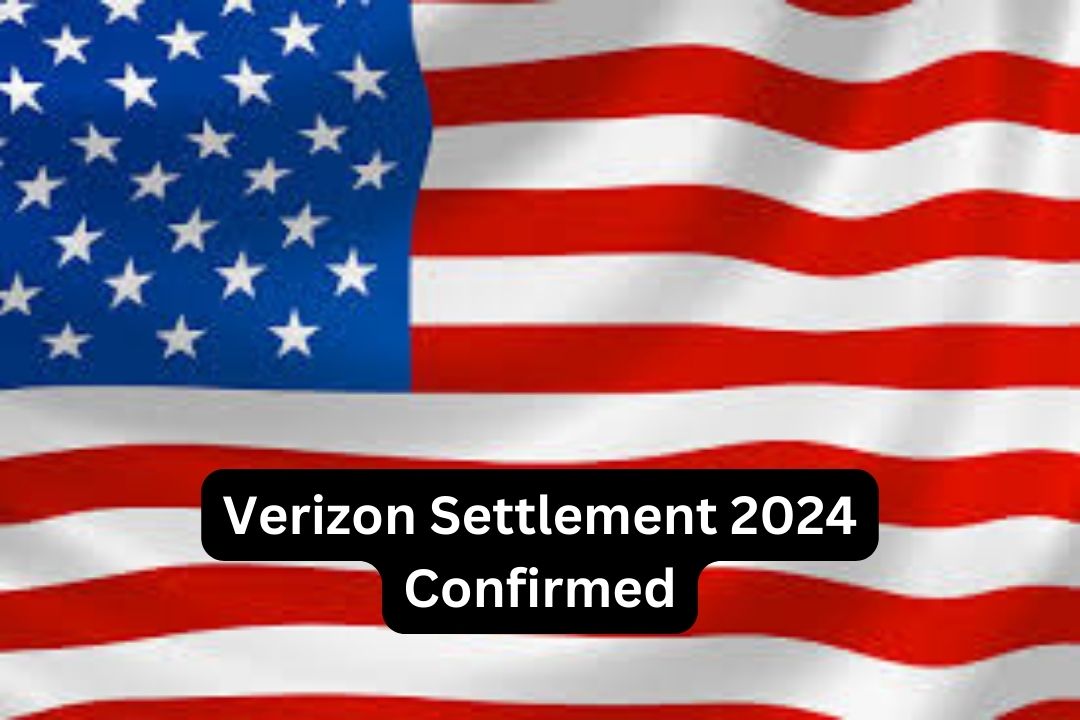Verizon Settlement 2024 Confirmed – Here, you will discover the essential revisions for the Verizon Class Action Lawsuit 2024 Settlement Payment Dates and Amount Form. Verizon consumers have limited time to apply for a proposed $100 million class-action settlement deal. The case focused on charges of misleading advertising tactics for its wireless service plans. The central point of the argument was that Verizon’s monthly plan prices contained mandatory administrative charges, and plaintiffs claimed that by excluding the fees from advertised rates, Verizon gave a misleading appearance of affordability. Continue reading this post to learn about the Verizon Class Action Lawsuit 2024 Settlement Payment, form, and more.

Verizon Class Action Lawsuit 2024
The lawsuit against Verizon stemmed from charges that the firm misled customers about their monthly wireless service costs. The plaintiffs claimed that Verizon failed to fully disclose various expenses, such as executive charges, which increased the quoted price of their plans. This conduct, according to the lawsuit, resulted in false advertising. The Verizon Class Action Lawsuit involved customers who were allegedly misled since the quoted prices did not reflect the entire cost they would pay. This could have encouraged them to select plans that were more expensive than they anticipated. The lawsuit sought to rectify this issue, resulting in a $100 million settlement for qualified clients.
Verizon Class Action Lawsuit Settlement Payment Date:
In the Verizon Class Action Lawsuit, each qualified participant might collect up to $00 in compensation. The overall amount paid to each client will vary depending on how long they have been a customer. Verizon has denied any wrongdoing, including on the payment. In November 2023, the Verizon Class Action Lawsuit Settlement reached a deal with the plaintiffs. This settlement established a $100 million fund for qualified consumers who were charged the contested fees between January 1, 2016, and November 8, 2023.
Settlement Amount
The Verizon Class Action Settlement included a possible payout of $100 per qualifying client, although the exact amount received depended on two factors:
- Base Payment: Everyone who submitted a legitimate claim was paid a fixed $15.
- Monthly Service Bonus: An additional $1 was granted for each month in which a customer was charged the contested administrative fee, up to a maximum of $85.
The total settlement fund of $100 million was distributed to all approved shareholders. If many customers participate, the individual portion will be reduced. The longer a consumer pays administrative costs, the bigger their monthly service bonus, which is capped at $85.
Verizon Class Action Litigation Form
To file the Verizon Class Action Lawsuit Settlement form, the receiver must meet certain eligibility requirements. According to your account’s billing address, you must be a current or former Verizon subscriber resident in the United States. Only consumers with postpaid wireless or data plans throughout the stated term were eligible.
Those who meet the requirements for eligibility can fill out the form by following the steps outlined below:
- Browse the Verizon Administrative Charge Settlement’s leading web portal.
- Then, locate the download link for the application form.
- Fill out the required information, such as your name, contact information, and other pertinent details.
- Fill out the form, attach the relevant documents, and apply by mail or online before the deadline.
- You will get confirmation and other settlement-related instructions within a few days of completing your application.
All We Know:
The Verizon Class Action Lawsuit was filed in New Jersey, alleging that some Verizon customers in the United States had cellphone service plans with higher monthly costs than those advertised on monthly invoices. The case was based on consumer protection statutes and advertising rules. Laws such as the Federal Trade Commission Act forbid deceptive or misleading advertising. The argument may have warped the concept of material omissions. Even if Verizon did not blatantly mislead, omitting critical information could be considered dishonest if it influenced consumer purchases.